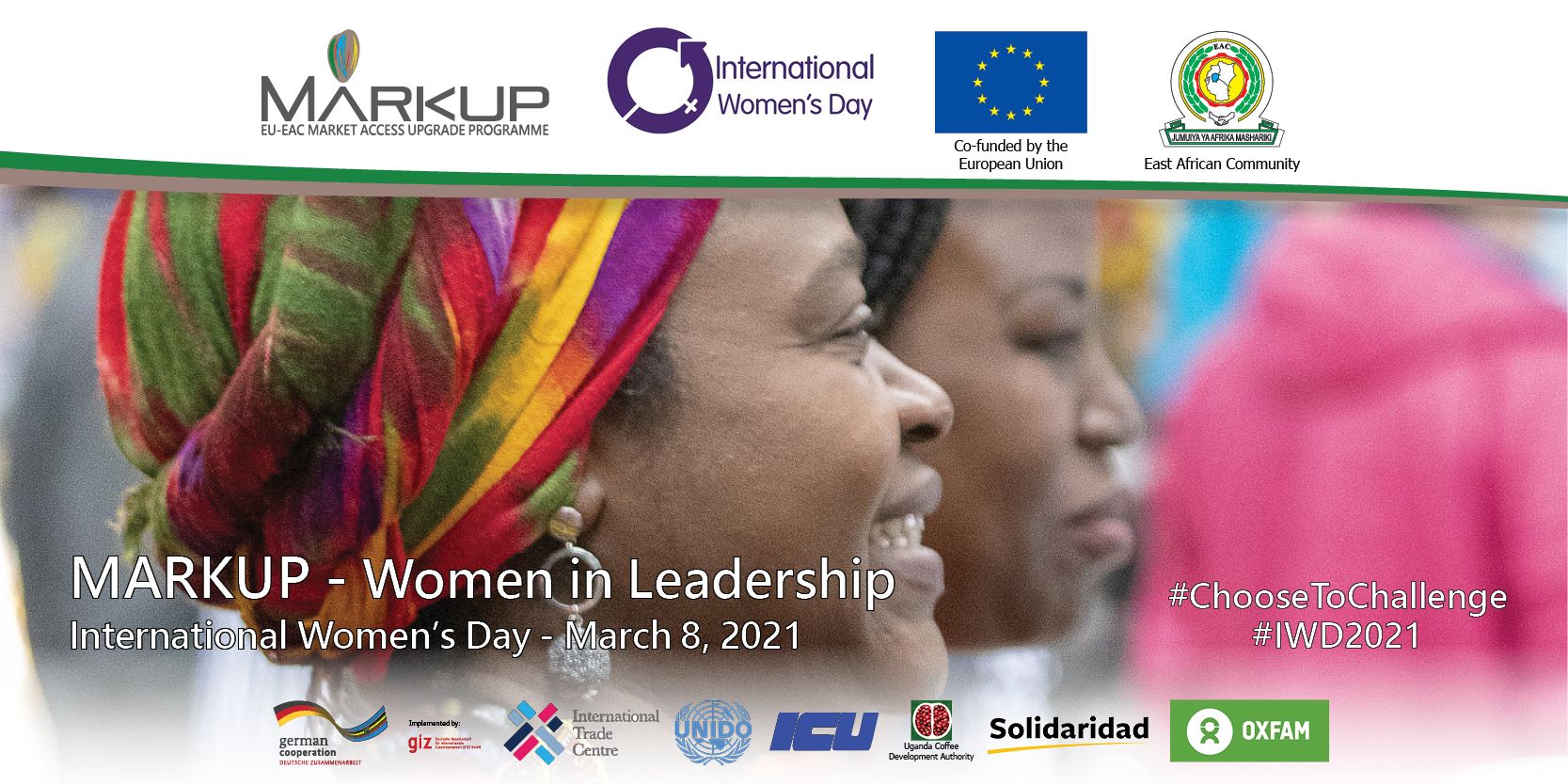
To mark International Women’s Day this year, MARKUP is celebrating the amazing women across our programme and sharing their stories of leadership and success.
Marked on March 8 every year, this year’s theme is #ChoosetoChallenge, and without doubt all the women featured here have faced challenges and grabbed the opportunities given to them. Here they share their thoughts and advice on being women in Africa, in male-dominated industries, but rising up within their chosen careers and making an impact.
Our women come from all walks of life and all segments of the programme. A business woman, a programme coordinator, an NGO country manager, and many others who have all come along a unique pathway to be where they are today. We’re incredibly proud to have them working with us, and to share their passion with you!
Meet the Women in MARKUP!
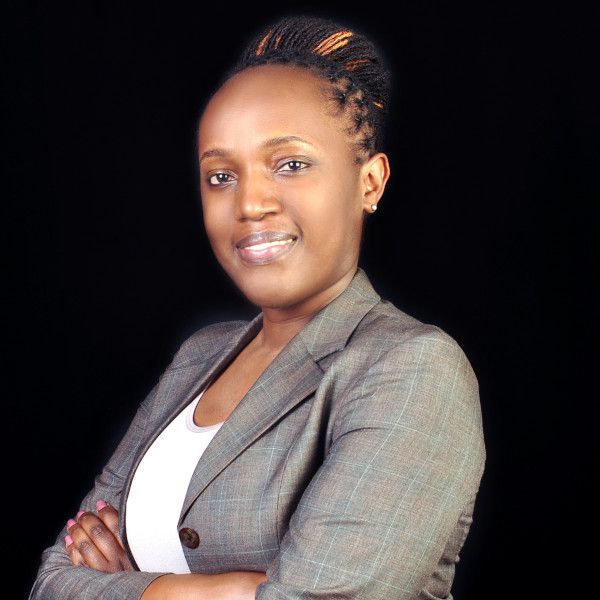
AURORE UMUBYEYI
Rwanda’s agricultural export industry is one of the fastest growing in Africa, and women are playing an increasingly large part in it.
Rwanda’s agricultural export industry is one of the fastest growing in Africa, and women are playing an increasingly large part in it. After finishing her degree in Food-processing Engineering in 2010, Aurore Umubyeyi began work with a horticultural export company, and today is using a decade of experience to empower other woman and create opportunities for their businesses to reach international markets.
“I was in charge of operations and there were many challenges to overcome. In 2010 we were feeling our way, there wasn’t much support for companies as is the case now. There was a lot of learning as we went, having to find out about quality and standards requirements and try to reach them, adapting systems and processes and even changing products.
“Now there are so many support systems in place, value addition is provided by the government and international NGOs and other organisations, all geared towards building a sustainable and valuable agricultural export sector.
As the ITC MARKUP Coordinator in Rwanda she is no longer exporting herself but now bringing her unique knowledge and insights to bear to help companies get the right products and quality into international markets.
“I’m working on the other side now, and it’s so good to understand the needs and challenges companies are facing, especially start-ups owned by women. I had done many trainings with ITC in the past too, through the ITC Trade Academy, which was targeting women in horticultural export, so I know where the gaps are and what sort of areas trainings need to target.”
ITC provides training and mentoring through the MARKUP programme, with initiatives like the Quality Champions – one on one expert help – as well a targeted workshops to help companies understand and reach the quality and standards and overall requirements needed for international export.
“One ITC project in particular, which supports Export Post Harvest Management in green beans and avocadoes, works with companies to find affordable options which they can put into place to improve their systems and benefit their post harvest production. Of the eight companies we are working with, three are owned by women, which in the past would have been very unusual. But today even though starting a horticultural company is still a big thing, more and more women are taking the plunge, and getting support to do it.
“The changes in the last 10 years have happened very fast and have made a real difference. Rwanda is one African country which has been investing in both the agricultural sector, and also, more importantly, in women’s rights and equality. There are now legal instruments in place for women to own land, which immediately helps families and communities with potential income streams. Banks and the government have products which target women too. Access to finance is so important for starting and growing a business, and now with special women-focussed products, there is a wave of new companies able to capitalise and expand.”
Attached to the changes she has seen across the industry is also the changes she has seen in women. “Women have more confidence now! They believe they are capable, and they are helping themselves and capitalising on the opportunities open to them. I see so many women in agriculture going out to get further technical qualifications, degrees in agro-processing and more. They are raising themselves up, building their skills so they can interact with confidence with people across their product value chain, as well as teach others.”
As agriculture and products like coffee in Rwanda really start to see export results, the role women are playing is growing. For Aurore, other women in the industry inspire her everyday. “The Chairperson of the Coffee Exporters Association of Rwanda is a woman, and when I see her making decisions and bringing people together, I am so proud. Coffee is one of the prime foreign earners for Rwanda, and she is leading a large and important organisation. She’s amazing!”
Being able to give opportunities to women to learn and grow in the field is one of the best parts of Aurore’s role. “In 2019 we took some representatives from coffee companies to a major coffee trade show in Berlin. Two were women, and seeing them networking and getting the international and professional exposure was really exciting. The impacts are short and long term, connections are formed and deals may come in the future.”
The COVID 19 pandemic has stopped trade shows and the opportunity to travel and network in person for the time being, but much of the work still being done is virtual. “It’s a little more challenging but as we’ve seen in the last year now, where there is a will there is a way. And I really know with so many women I work with, there is definitely the will.”
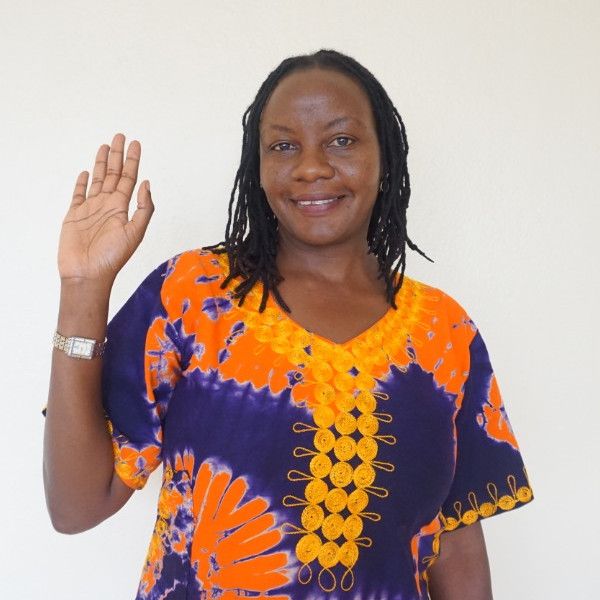
ESTELLA ARYADA
“When I was around 11 years old I remember really noticing my mother and everything she did.
“When I was around 11 years old I remember really noticing my mother and everything she did. She was a quiet, soft spoken woman, but she was the Mayor of our town, on top of being a teacher and managing a household, sorting out the garden, caring for us. Uganda was quite a turbulent place then, and actually there were many strong women around. With husbands in exile women had to cope and get on with things. It really did show me I could do anything I wanted, and gender was not a barrier. And I just carried that through my life, despite meeting some obstacles as a woman along the way.”
After a career spanning multiple countries and progressively more senior policy and advocacy roles in international organisations, Estella Aryada is today the MARKUP Programme Coordinator, a position she loves and one where she is watching change happen daily. “After more than 10 years in the trade policy world, where after years of working hard results were sometimes incredibly hard to calculate and see, I enjoy working in MARKUP because results are tangible and being achieved all the time.
“The day we all started at the beginning of the programme two years ago there were no structures in place, no website or communications tools, no documents. So from the first week we had to take a crash course in MARKUP and get moving. We had to start operationalising, forming a close working relationship with the EU, finding gaps in the regional standards and making a workplan to tackle them, getting communications and M&E sorted. Which they all are now. Almost every week sees progress and with the oversight systems in place all our partners are reporting back and proving their progress too.”
For Estella though the truly satisfying part of being part of MARKUP is the focus on SMEs. (small and medium sized enterprises) “Working with people who are growing and making and selling things to improve their livelihoods and improving their positions.
“A recent financing bootcamp hosted by ITC was held for 20 women. I believe that when it’s women being trained it is impacting more people at the end of the day. Younger woman are seeing their female bosses not only running companies but getting skills to make the company better, and are inspired and know that could be them one day. Seeing companies benefit and improve through the new skills they have learned, and what that shows other women, their communities and their children, is all inspiring to me. It seems to me that when a woman is trained – in anything – the knock-on effect reaches so much further.
“And in MARKUP there are so many women across the different fields we work in. Trainers, policy specialists, experts adding in their knowledge, as well as women business owners and farmers and exporters – so many women doing amazing things out there!”
Leading the MARKUP team is not the only team Estella oversees. “I started a community-based organisation – Bumasikye Education Improvement Programme (BEIP) - in the village where my grandparents lived in Uganda. It was a village where traditionally bright students had done well and continued on to better education, but as a rural area good teachers moved away to the cities and the quality of education went down at the three primary schools. So my organisation is working with the children to get them ready for the exams with special tutoring. We want the students to not miss out on the opportunities that others have living in urban areas with better schools, and giving them this extra school help means they can get placements at good schools for high school and onwards.
“Covid has been an issue as schools have closed but we are battling on. It’s a real challenge though, there are so many needs and so many avenues we could go to help not just the students but the whole community. But I’ve been encouraged to see some independent actions come from the community.
“One example, which made me realise we were really making a difference and women in the community were taking matters into their own hands, was when I was approached by two village women who wanted to intervene with some of the students. They had noticed that some of the girls at the school were coming from less than ideal home situations, and they offered to approach them and have tactful conversations and gain trust and do some education around female hygiene and health. They have also now spoken with the girl’s guardians. They are only two women so can only do what they can, but it is so encouraging to see and especially that they saw the problem and got involved and are protecting the girls and creating a safe space for them.”
“I do think that society has changed since the time I went to university and started by first job in sales as the only female sales representative for a large newspaper. My first degree in commerce was especially male dominated, and it was a shock after coming from my girls-only school and teacher parents, who never treated me any differently for being a girl, to a lecture theatre where women had to shout louder and do more to be heard and prove themselves. And in sales, were to be honest my hiring felt like tokenism at the time, it was very hard selling advertising – mostly to men - and I really did feel like I had to do so much more to get anywhere.”
Looking back over her life and career, from her university days, years spent working on trade policy for the EU Delegation to the Commonwealth in London, SADC in Botswana, to her current position with MARKUP she has seen change – in the attitudes of people to women, in how woman have had to be seen and heard, and in how different countries and societies attitudes can be very different.
“I’ve had to deal with mansplaining, always working as the only woman or one of only a handful in teams. It was refreshing when I reached a senior enough position that men would respect the role as opposed to be concerned about my being a woman in it. As a woman you often have to think strategically about how you are going to get an idea up and running, and sometimes that involves giving up credit to make sure it happens.
“When I went to the UK to do my Masters degree I felt the difference between Africa and there, women were much more equal, the patriarchy was almost non-existent. When I started work in policy and advocacy and research my experience working in the real world for different types of companies and not coming straight from academia worked in my favour and stood me in good stead. As I pursued a career in trade and development – which became and remains one of my passions – I’ve almost always been outnumbered by men. But today I know my strengths and what I bring to the table and I hope I am seen as a leader among my peers.
When she goes back to Uganda now, usually at Christmas time, to see her family and help oversee BEIP, it’s a world away from trade policy and sitting in an office and zoom calls. “Some things never change, and going home there’s still my large family and nephews and nieces and neighbours all around. But my mother is still there leading it all, and the women in the village are taking matters into their own hands, and I am still encouraged that when women are given the opportunity to lead, they can and do!”
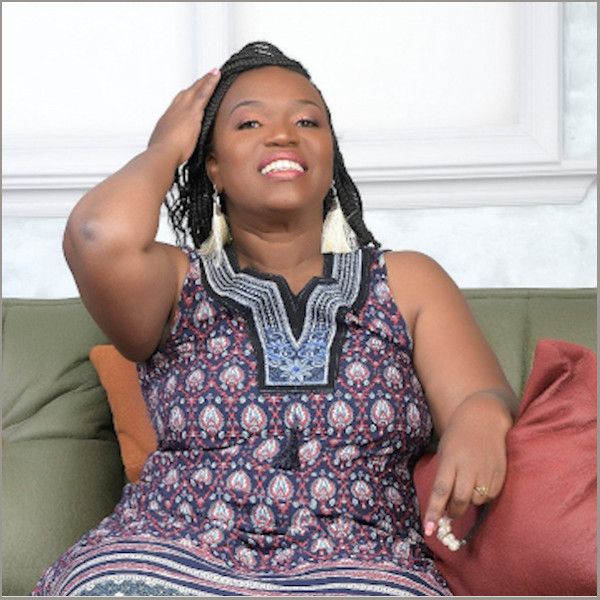
EVA MUTHUURI
This is our decade! Everyone wants to support women, there’s a gender lens on development and women-owned and run businesses are in the spotlight too.
“This is our decade! Everyone wants to support women, there’s a gender lens on development and women-owned and run businesses are in the spotlight too. It’s such an exciting period in history. The world is connected like never before, social media bringing our brands to people on the other side of the world instantly. We need to celebrate technology, our brands and ourselves!”
As the founder of Eva’s Coffee, a fast-growing coffee company in Kenya, Eva Muthuuri is definitely grabbing every opportunity she can. Eva’s Coffee – named for herself and also the biblical Eve from the Garden of Eden – markets itself as “Pure from the Women of Kenya” and this ethos is in both the coffee itself and her dealings with the women growers and their communities.
“Coffee paid for my education. I grew up on a coffee farm, and after years working around the world in international development for organisations like the World Bank and the UN I was drawn back home by my love for community and a need to give back to my society here in Kenya. We started out in 2013 when the Sustainable Development Goals were formulated and we wanted to respond to the Aid to Trade thinking of the time. We thought what does Kenya have that the world wants? And of course coffee is the answer!
“My background is public health, and I am bringing some of that to our coffee business too, talking about gender issues and non-communicable diseases with our coffee farmers, creating something more holistic beyond just buying and selling coffee.
“My grandfather used to walk me through the coffee, showing me how to harvest the berries, teaching me about the farm.” It’s this she remembers when she is working with grandmothers on coffee plantations, buying their produce and giving them their small income. “For me this community of women is at the heart of everything I work towards. A fair price, the possibility of rising up higher.” She also credits her father for setting her on this coffee business path, and admits that a lot of her striving for success was to make her father proud. “He held my hand and raised me as an empowered girl child, taught me coffee and made me want to always do better.”
Through the MARKUP programme she has been making the most of all the trainings on offer with ITC to grow the business, from branding and packaging to marketing and access to finance. “There is a lot of support around now, networking groups to join, women helping women, passing on contacts and linkages across the region, as well as internationally. There are online training classes, the SheTrade initiative, the government, embassies and chambers of commerce, all which give some insight and build some more skills.” The recent MARKUP EAC Invest virtual event also brought a lot of food for thought, and future possibilities. “I’ve come away with so much to think about, lots of connections with financers like USAID and capital investors I hadn’t heard of until now. I didn’t know there were so many possible companies who could invest and help us, and I would never have found them on my own so I’m very grateful for these boosts.”
“I’ve also recently woken up to the advantages of social media after I did a training and learnt how important it can be for positioning my brand and setting an impression around our products. I had to really look at what I was communicating to the world, how we were representing ourselves. I even did a professional photo shoot which was so much fun, make-up, hair, everything. It’s all part of building a brand, and I really want to make sure our brand is seen and heard and our women are properly recognised.”
As young people are inheriting their family farms, and the world has changed around the covid pandemic, with many having to find new income sources, Eva is finding more and more people arriving on her doorstep asking for advice about coffee farming and the whole coffee value chain.
“I know a pilot who has temporarily stopped flying to get his family coffee farm off the ground, and a female engineer got my number to ask advice about how to start farming, having left the family farm and followed another career until now. But the interest and evidence in farming is growing. So many young people are now starting to see a way to make a living from coffee farming and discovering that it isn’t a dirty living where you only eek out an existence but with investment and strategy and good systems and structures in place, profits can be made.”
This also extends to the African diaspora feeling the pull of home and connecting to see if they can become involved, as well as contacts she’s made through her life excited by her coffee company. “Recently I’ve had calls from Switzerland and the USA, people wanting to sell our coffee in their countries, get involved and tell our stories where they are. My old university roommate, who I hadn’t heard from for almost 30 years, heard me on a radio interview in Germany and got back in touch and we’re talking about coffee and tea and exporting to her. The world is so connected now and there are so many possibilities and people linking people.
“There are many steps to take before this can become a reality but I’m really encouraged by the enthusiasm and interest I am getting from abroad. We need to work out how to get things working at the other end. Warehousing, shipping, price competitiveness, so many things to sort out so we can fit into the international markets.”
One of the jokes Eva loves to tell is that if Eve had eaten a coffee berry instead of an apple, we would still all be living in the Garden of Eden! It’s this optimism and enthusiasm that is pushing Eva and her coffee company forwards, and bringing Kenya’s women along with her.
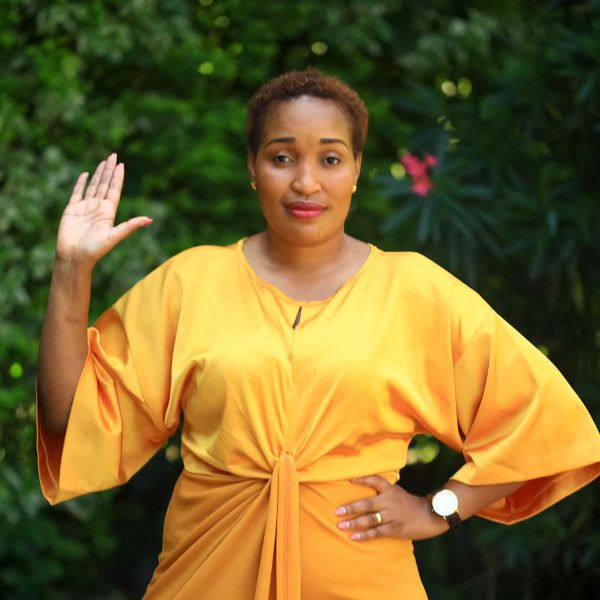
MARY MKONYI
Solidaridad began working on MARKUP in Tanzania in 2020, and Mary Mkonyi, as Tanzania Country Manager, has been leading
Solidaridad began working on MARKUP in Tanzania in 2020, and Mary Mkonyi, as Tanzania Country Manager, has been leading their efforts to implement a holistic program with 21,000 farmer’s and communities across three commodities: coffee, tea and horticulture in the southern highlands.
“There are four main areas we are working on with our farmers to ensure sustainability. Environment and biodiversity, profit, so they can be assured of an income, workers’ rights, which includes health, fairness and equitable conditions in workplaces, and occupational health and safety, ensuring they understand they should be protected in their place of work too.”
Underpinning all of this however is also a dedicated gender and sustainability approach. “We look specifically at women and youth and try to create awareness among whole communities around rights, equality and the benefits of joint decision making and a joint future. We create environments where we discuss equality with men and women of all generations and it’s been inspiring to see the reactions – mostly positive – to this thinking.”
“We train at different levels of communities, but focus now is on a top level of lead farmers, who once they are capacitated teach and train others and share their new knowledge.” At least 40% of the farmers they work with are women, though in Tanzania the coffee and tea industries are still very male dominated, so there have been some challenges around this.
“We promote household decisions and creating incomes for women. So when we talk about gender equality and run education workshops in communities, we always include men in the discussions. Discussing openly how women being part of decisions and family incomes can raise families up, and help them reach their goals. Whether it’s to put their children through school, buy more land, a bigger house, whatever, raising women to equal status in decision making and earning capacity benefits the whole family.”
One of Mary’s favourite parts of the job is getting into the field and listening to women. As a strong working woman also raising a family she is setting an example and knows she is seen as a role-model almost everywhere she goes.
“I still juggle child rearing and office work, am working on a work life balance and “me” time as well as career development. My husband takes on an equal amount of the children and household load. I tell women and men when they tell me they want their daughters to grow up to be like me that it is possible and to give them the opportunity to go to school and make decisions about their future.
“Most women in Tanzania – and across Africa – don’t have the opportunities I did, or the support I have now. They grew up with barriers, whether not getting an education or having to shoulder household or farm or child rearing duties at an early age which limit their time to go to school or have time to revise at home. Living in a patriarchal society still means often they just aren’t listened to. It’s not that they aren’t smart and can’t do incredible things when given the chance, but if they aren’t given the opportunity to speak up and show their worth things will continue as they are.
“Through Solidaridad but also because I really believe in it, I want to encourage the next generation to aim higher. I tell women that when they are working they need to show their value. Whenever they are given an opportunity to take with both hands and prove what they are bringing in, the difference they are making, and how they are contributing and creating benefits for the whole community. And when men understand and see this too things do start to change.”
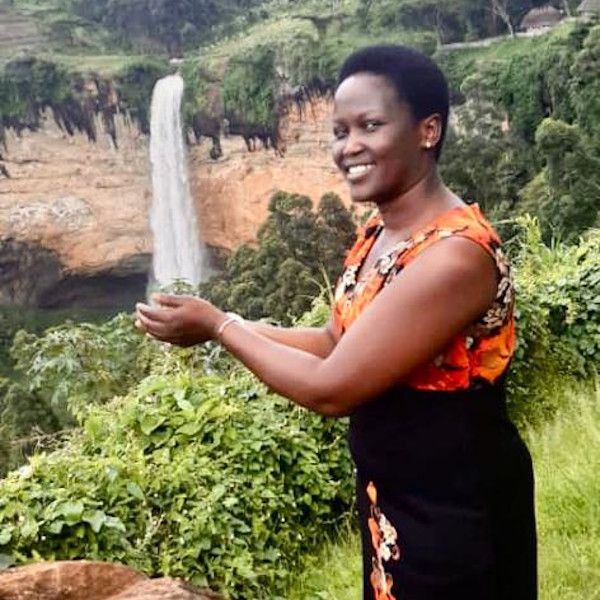
SYLVIA ACHEBET
When Sylvia Achebet, founder and Executive Director of Masha Coffee goes back to her coffee farm in rural Uganda-Kween District
When Sylvia Achebet, founder and Executive Director of Masha Coffee goes back to her coffee farm in rural Uganda-Kween District, she always gets a sense of surprise when interacting with the community. “I am asked who is the owner of this farm, because they don’t expect to meet me with my hands dirty, carrying tools among the coffee bushes, working the land.” But sometimes this also reminds her how far there is to still go for women in coffee farming and business generally. “Even now when I go out to the women coffee growers looking buy their coffee berries, they don’t believe I am there to do what I say I am. They think I am joking, that I want to give them a fair price, and that I am a woman running a coffee business. They say no, it is not possible and they still insist and ask which big company has sent you?”
“I know as a business we have so far to go and so much to do as women, and I’m reminded almost everyday, when I think about all the things we need to learn more about and get right. We’ve been getting involved in as many trainings as we can, thanks to the MARKUP Programme and ITC. We’ve done resource efficiency training, coffee wash station management, packaging, certification, branding, and how to use the media for marketing, all of which is adding to our growth and abilities.
“We’ve also had some recent wins. We submitted our coffee samples to the Best of the Pearl Arabica coffee competition, which is an annual event by the Uganda Coffee Federation and Uganda Coffee Development Association. We’ve been developing our cup profile and quality which is the most important thing to us. Besides MARKUP, am also a member of IWCA-Uganda chapter where I have gained a lot knowledge and lessons from the experienced members and as women, we are still putting efforts together and helping each other and looking for all the opportunities for our companies to take.
“Right now we are getting the quality right, but going forward it’s quantity that’s needed! We’ve got enquiries from the Czech Republic, Denmark, Canada and California, who are very interested in our coffee, and the fact that we are a women run business raising up women. The Farm to Cup ethos coupled with empowering women is a very strong selling point.”
It may be a strong selling point but Sylvia began Masha Coffee with a genuine desire to help raise up women. “I grew up in a village, it was very tough, but I saw the women me around dealing with so much, and not always being able to use all the skills they have because their lives are too full of house chores, family and farm responsibilities. And what are they getting at the end of the day? I wanted to make a difference, be part of them, add benefits to their lives, by offering them good prices for their crop and giving them some hands-on training with the aim of uplifting them to financial stability.
“My husband had some land and I convinced him to plant coffee and I was determined to do it properly, as so much coffee grown here is not of good quality as a result of poor management. The farmers don’t understand how to reach quality standards and therefore will never make proper money from their crop. We set up a demonstration farm at our premises and run individual trainings which we hope we can expand into group trainings soon, and all this will culminate into quality arabica coffee production.
“MARKUP provided us with some training materials to pass on to the farmers we work with, looking at correct farming techniques, how to get a good yield and maintain it. If you do it well you get beautiful red ripe berries, but we found people were harvesting too soon. They didn’t know that when you leave the berries for another few days, the quality would improve. So we talk to them, show them, explain that we will still buy the berries in three or so days time when they are at their best.
“We also go beyond farming, taking a more holistic approach and training our women in financial literacy and giving them more confidence in general. I started my life on a coffee farm, got my education from the benefits of coffee and now lead a family founded coffee business for the financial independence of our community through empowering women. Our agronomist is a woman, most of our team are women too. My advice to fellow women, and anyone, is always put God first, be focused and know what you want, and then go for it. I really hope that I am showing them the possibilities and setting up opportunities for them too.” The journey is long but we have just started.”
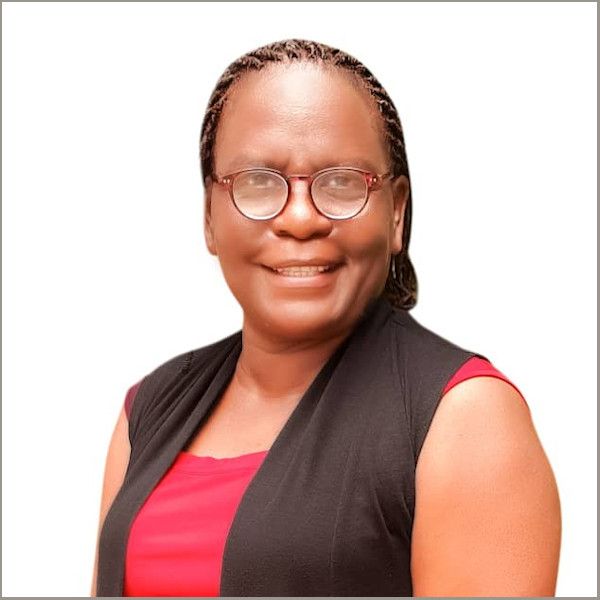
TEOPISTA NAKKUNGU
Teopista Nakkungu grew up surrounded by coffee on her family farm in rural Uganda, and continued her love for coffee into university
Teopista Nakkungu grew up surrounded by coffee on her family farm in rural Uganda, and continued her love for coffee into university, where she developed a system for improving the washing and fermenting of robusta beans. Over her career in both development and multi donor organisations and the private sector she has seen many changes in the industry, but when thoughts of retirement crossed her mind she was convinced to stay on by women who wanted her to continue her leadership and share her knowledge.
As the Head of the International Women in Coffee Alliance in Uganda, she now continues to bring her expertise and extensive sectoral understanding to advancing women in coffee, and helping break down the barriers that stand in the way of an equitable industry.
IWCA works across the spectrum of advocacy and training work for and on behalf of women – from National Policy work with parliamentarians through high level workshops down to community engagement which includes bringing men into the conversation around gender equity and women’s rights and opportunities. Teopista believes to raise women up there should be more education directed at men too “This needs to start with youth. The challenge is a generational one, where men need a change of approach, and going forward we need the next generation of men to recognise the benefits to them of the women in their lives and communities being able to make joint decisions, make their own income, start their own businesses and get trained in new skills.
“I enjoy being in the field and hearing the stories of women and seeing where there are opportunities to help them succeed. A majority of my and IWCA’s work is training. Women are so serious and focused, they come for training and are determined to use it.”
“In the coffee sector I want to see them lead, and I want to see investment going into the right places. We advocate for standards and certification to the products are improved and can become more competitive on global markets. I also think clean planting materials are something we should be focusing more on – to stop diseases and again raise quality.
“We have been trying to overcome some deeply rooted societal issues which sadly sometimes leave women out of the decision-making process. Women are almost always under-represented. Whether as a plantation worker, a grower or an exporter, issues that always come up are childcare, land ownership, a lack of education through not being given the opportunity to continue to higher education. We have been building the capacity of women to lobby for themselves and educating those who take decisions which impact women in coffee.
“Men will come to be trained and then not pass on their knowledge. There will always be post harvest quality issues and many other problems which training can help overcome, but the trainings need to be across the board, not just with men.
“Some women believe that opportunities are for other people. I see this often, where trainings are offered and inclusive activities are devised but still sometimes women lack the confidence, or have been consistently told this is not for them to get involved in.
“But I always think less educated doesn’t mean they have less of an ability. With greater access to information both men and women will begin to see the positive possibilities of equality. We advocate for joint household training and decision-making and are seeing some success in this.
“This also requires a societal shift. Uganda still has a very heavy patriarchal society. There are legal frameworks and international agreements towards women’s rights and equality, but at the village and community level this still doesn’t always translate. And even in the Department of Agriculture and in export and horticultural companies, there are still no woman in top management positions.”
IWCA is a membership organisation and resources are often limited, though with the resources they have they are creating communications tools and moving online more.
“We are focusing on speciality coffees, and here in Uganda we have women selling their coffees to Australia, the Czech Republic and other countries. People are still seeking out Ugandan coffee, but there is a lot of work that goes into getting coffee onto the international market, and helping women business owners break into this arena.”
Through MARKUP and ITC training programmes Teopista has seen women’s confidence build. “Right now I see a lot of specific coffee sector training helping and being attended by organisations and individuals in Kampala and those with enough money to get there. But we would like to see industry training out where the coffee is grown, where women are facing barriers everyday and where with more information and investment they can be helped to overcome them. Access to Finance opportunities are especially relevant and women should not be afraid to accept finance to start or grow.
“Coffee is sometimes quite generational. I see many of the younger generation of women going into different coffee sectors – grading, baristas, trading. We don’t want the farming to be left to the older generation though. We are trying to encourage investment in coffee farming, getting people to see coffee planting as a good income and way to reach their goals. Also teaching better farming techniques, leading on replanting programmes with aging farmers, and looking beyond just the farm at activities to bring in income or prepare the business better while the coffee is growing.”
As IWCA continues to seek out funding to spread their work even wider, Teopista remains optimistic about the future. “Women are slowly becoming a stronger force in the sector, gaining confidence and jumping on the opportunities presented to them. Sensitizing communities and society at large will start to bring results – it’s all about awareness raising and ensuring people listen and understand the benefits equality brings.”